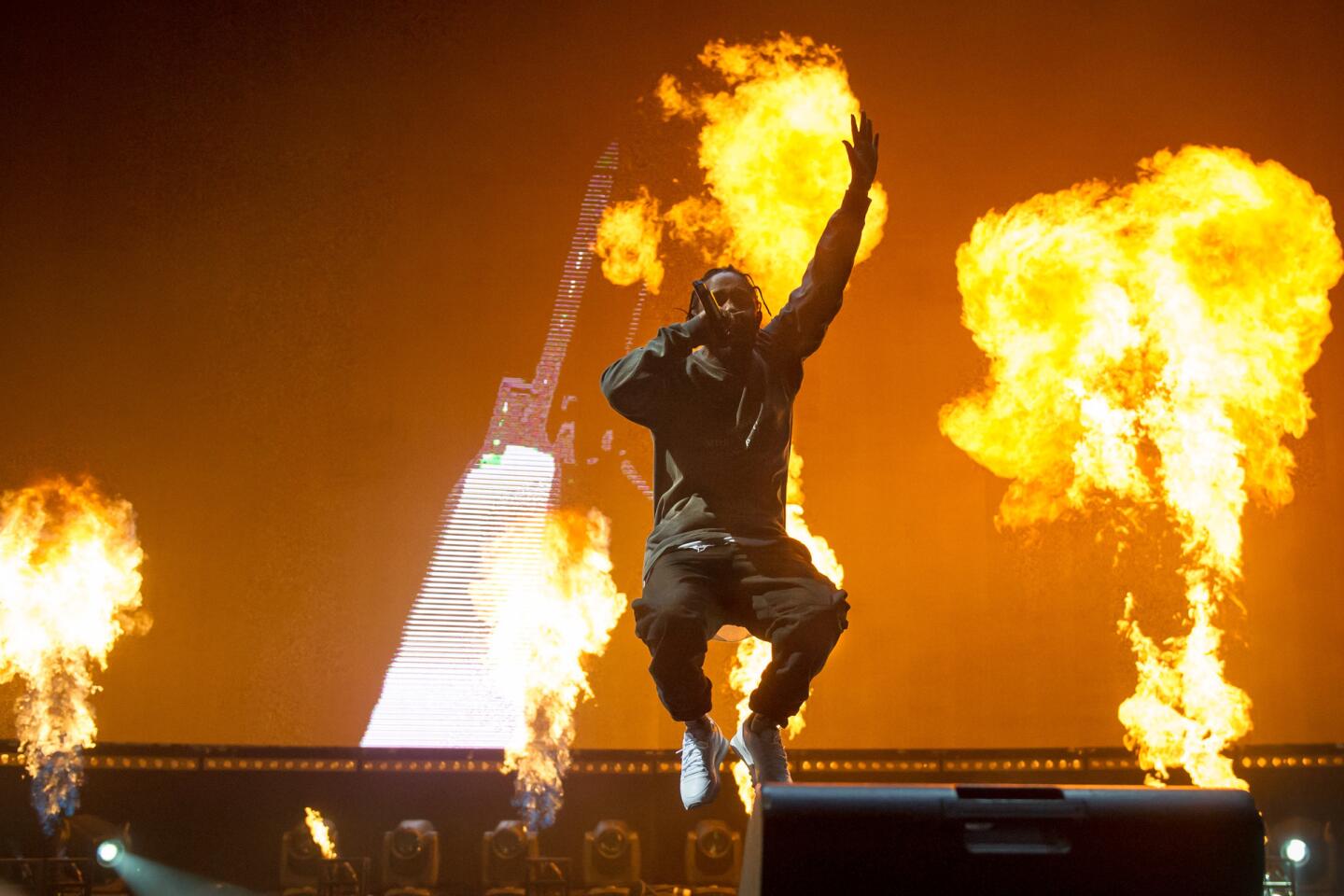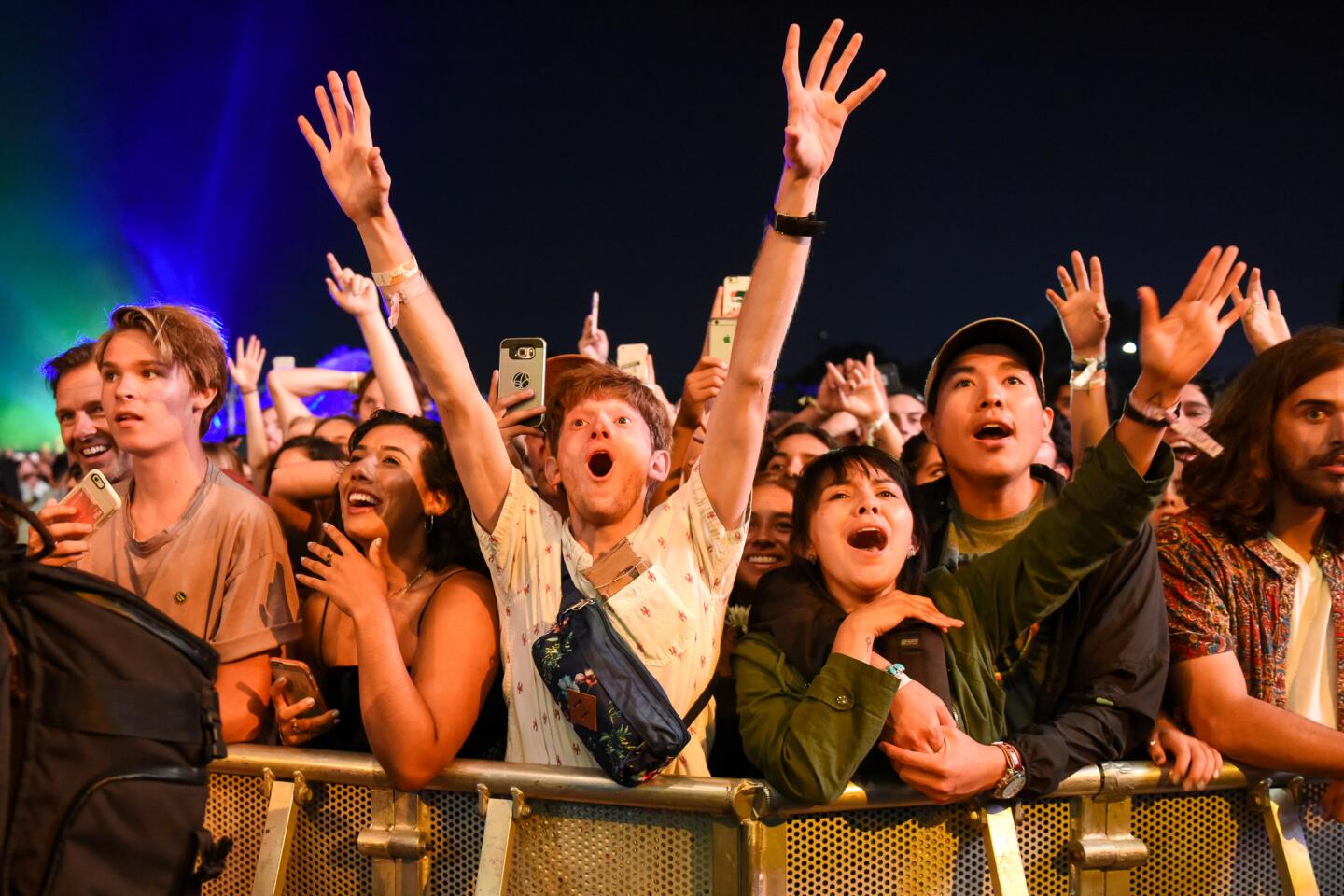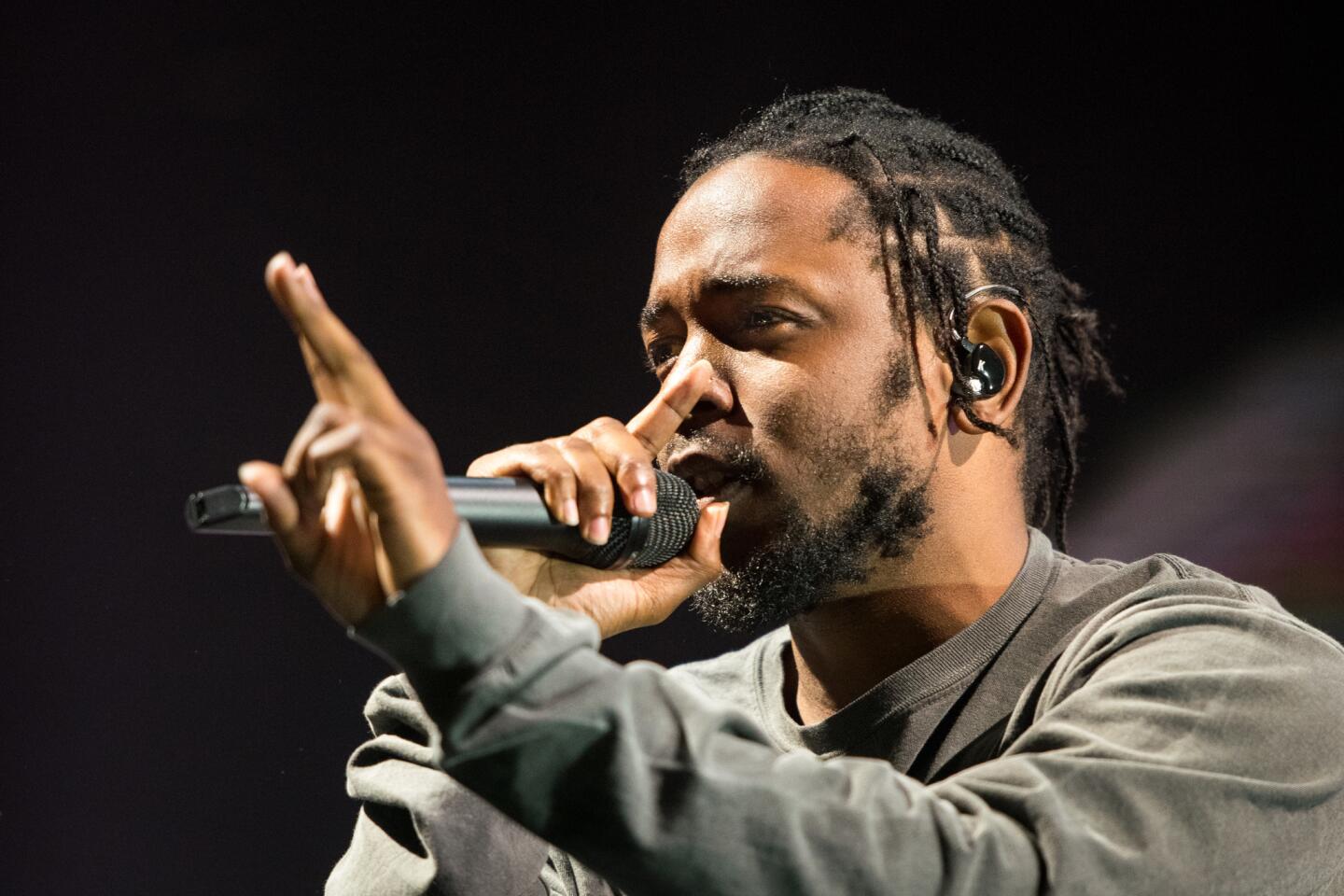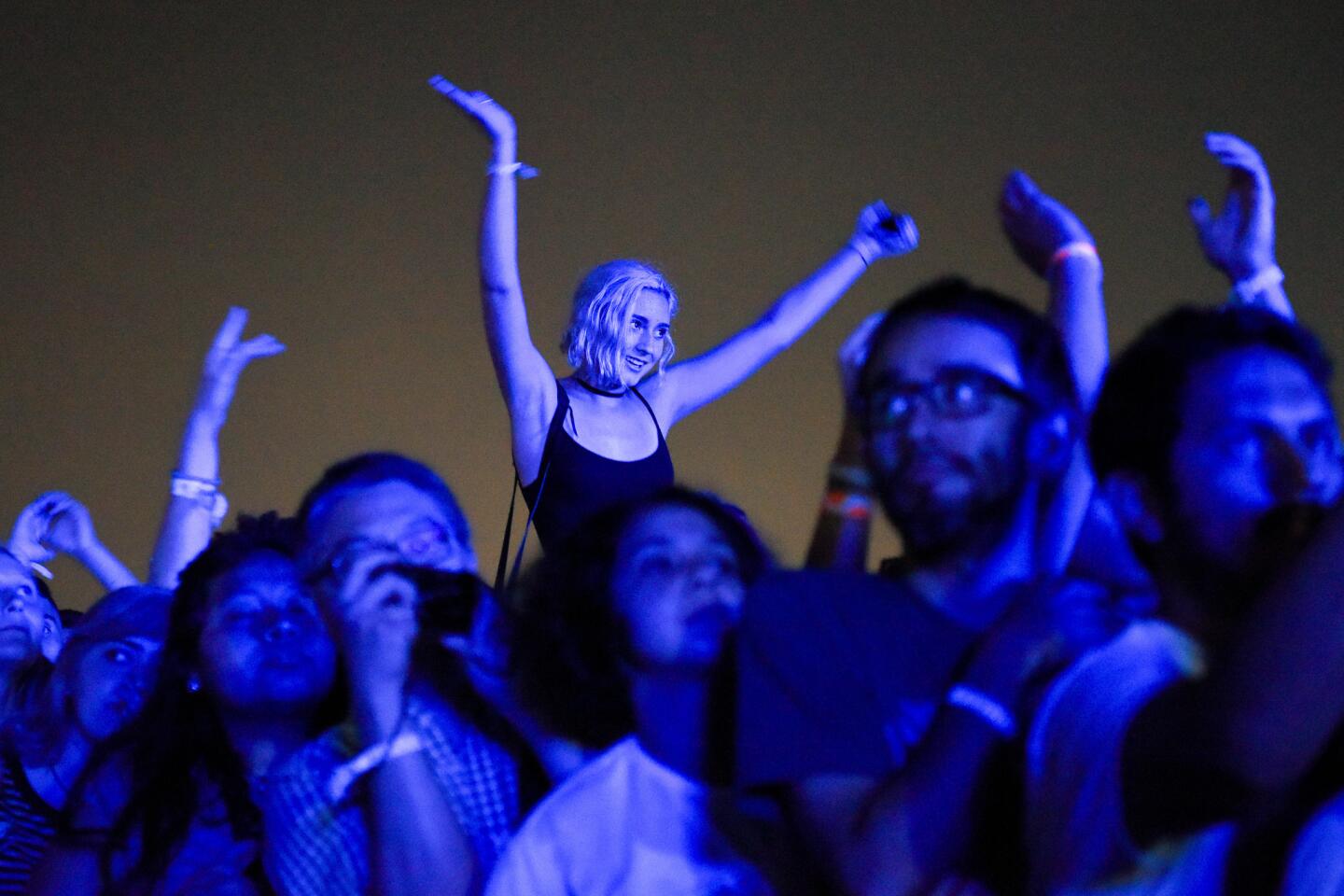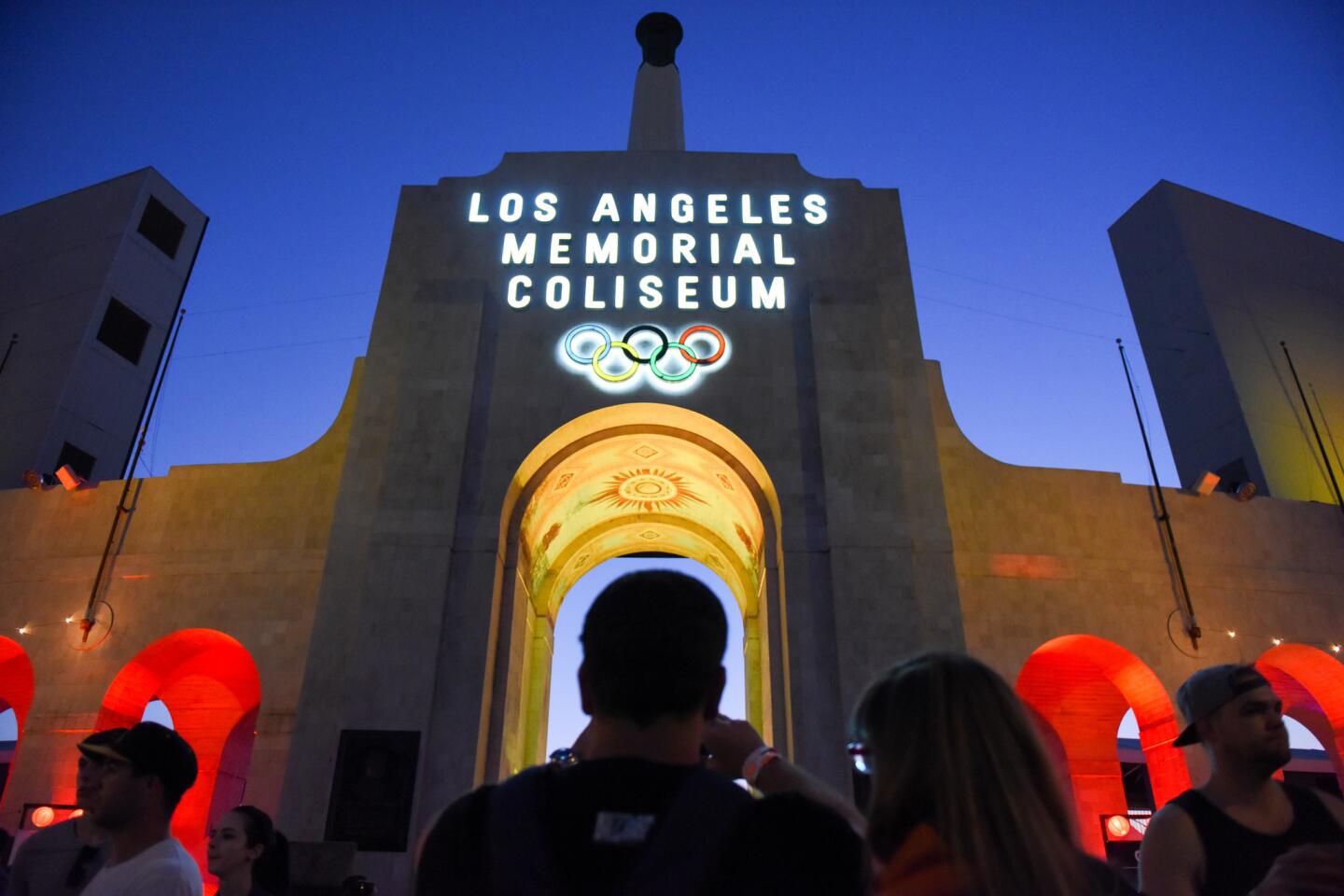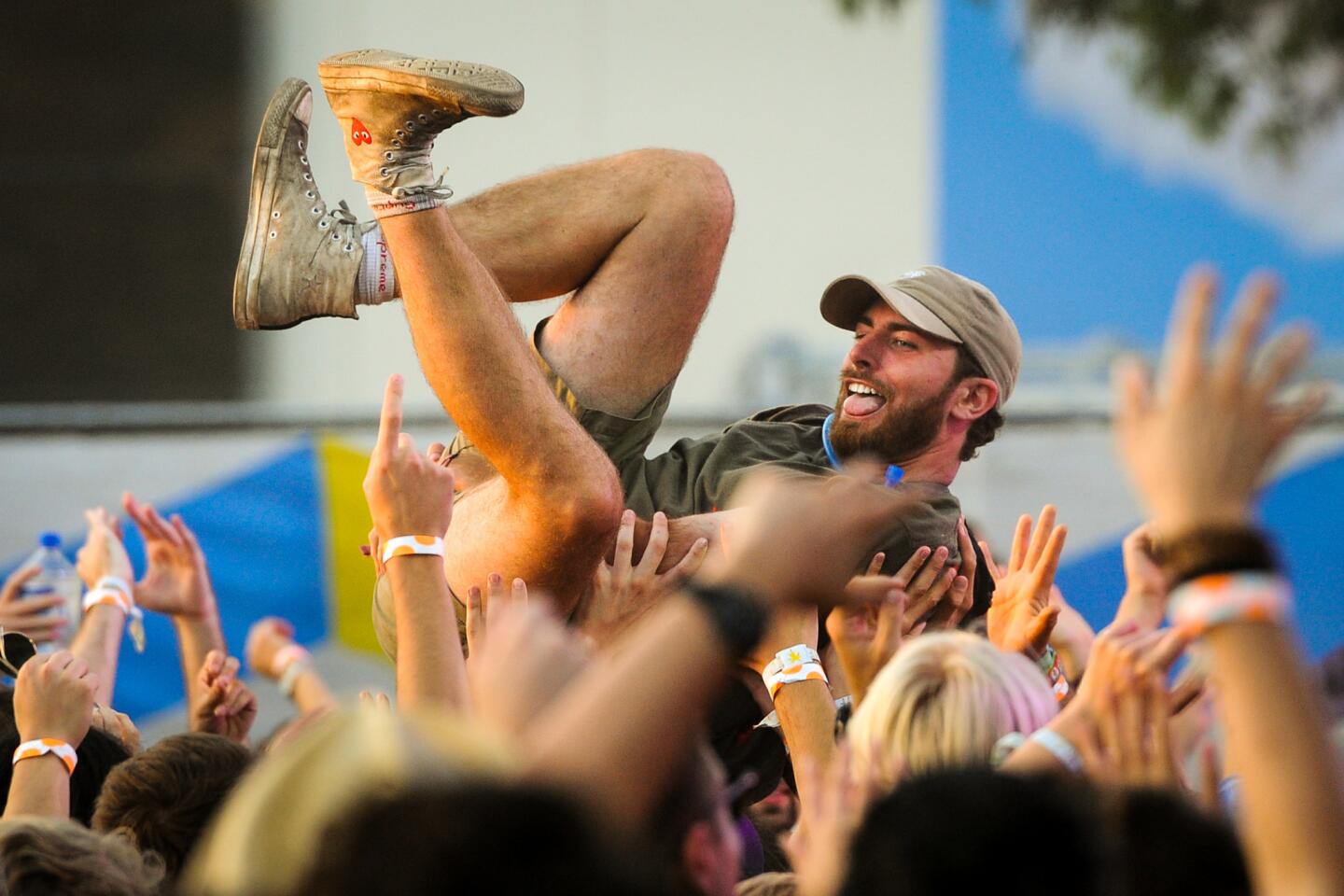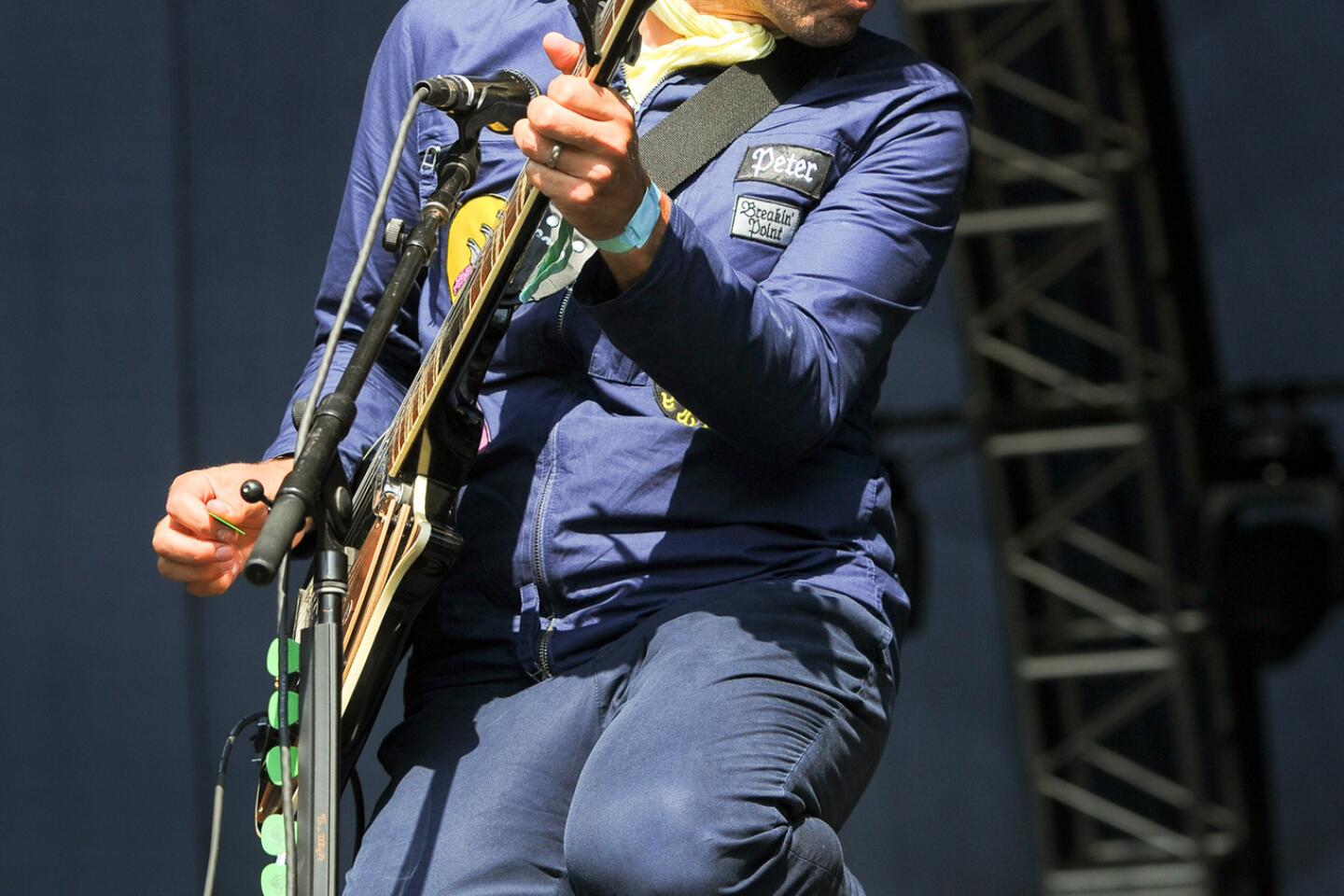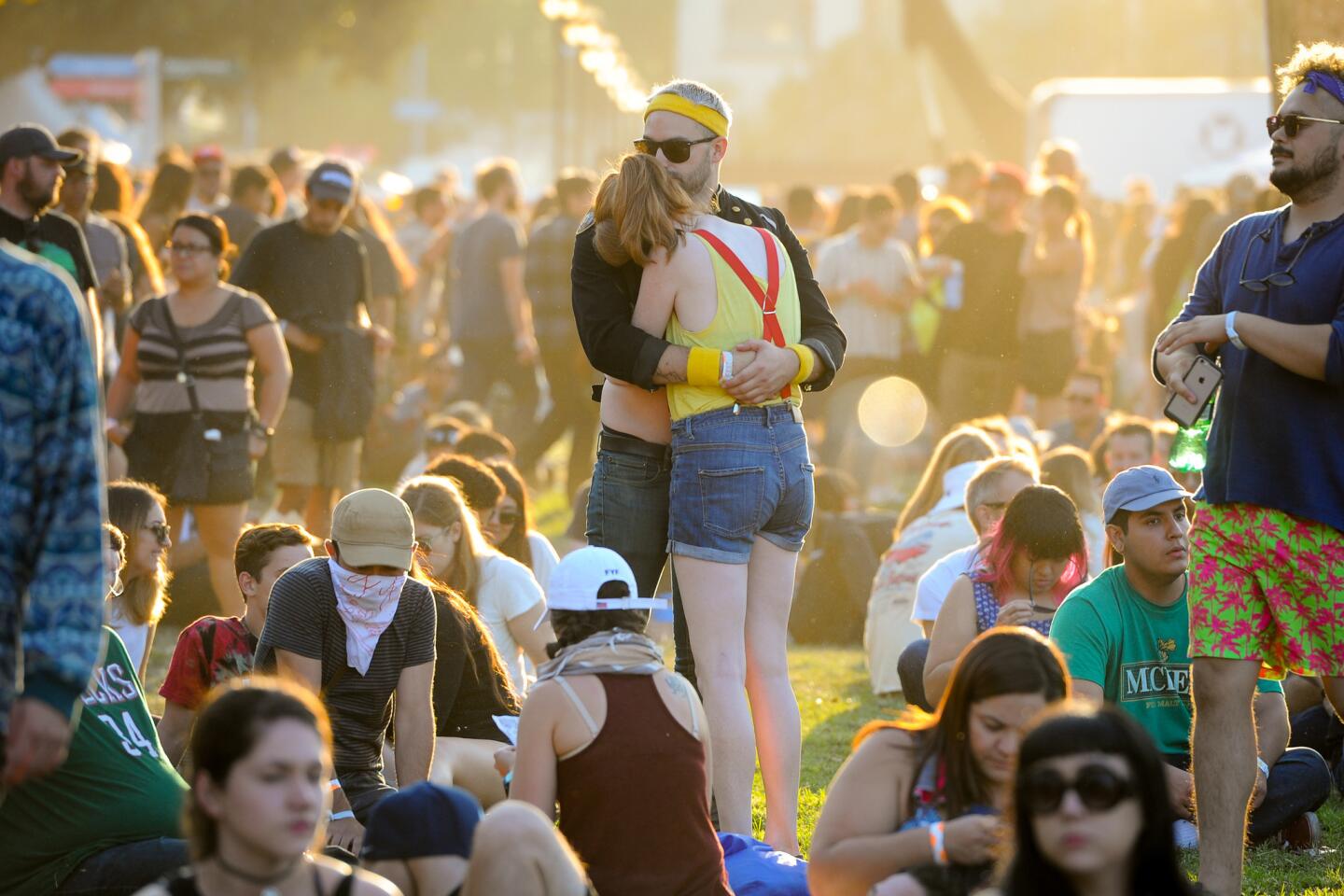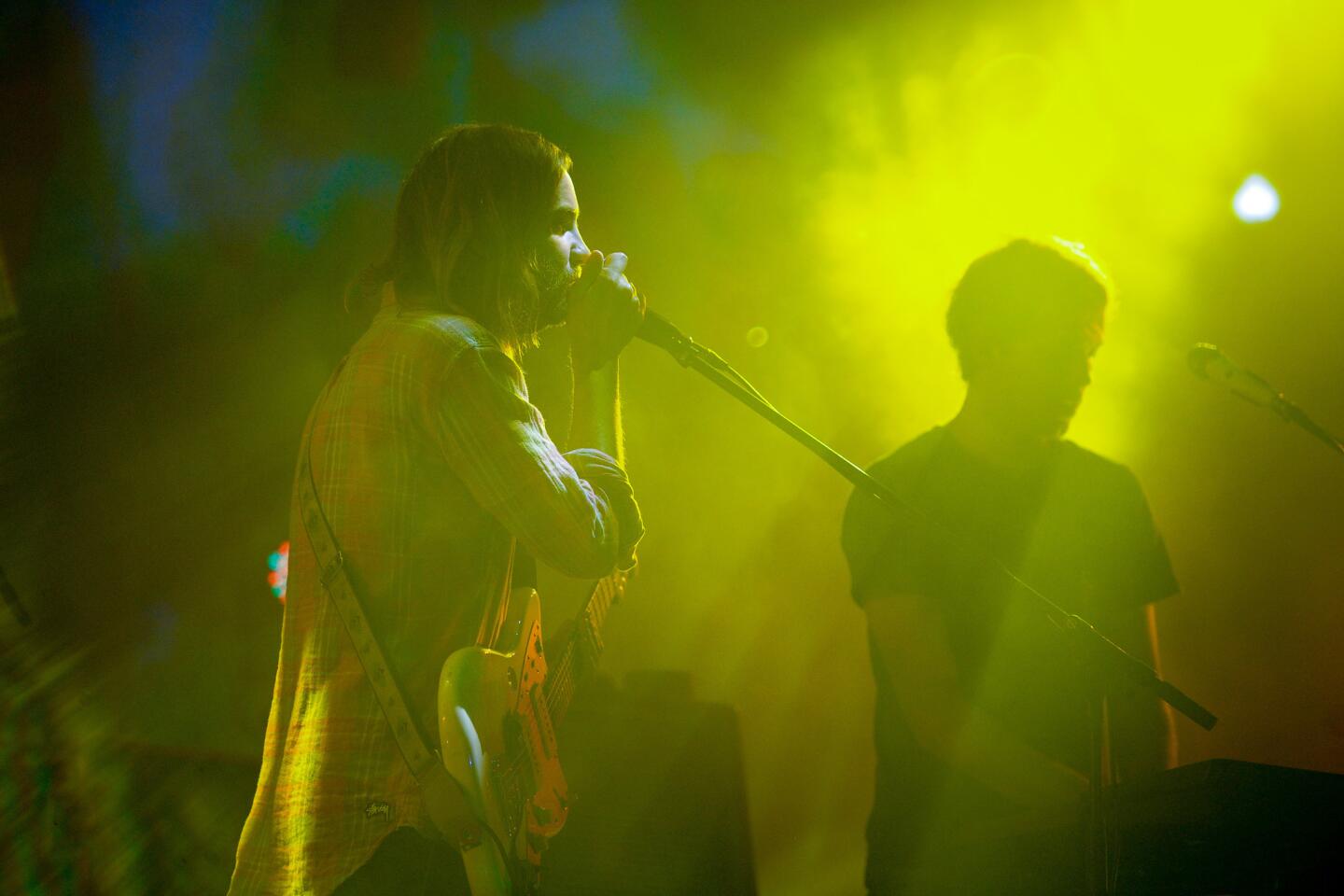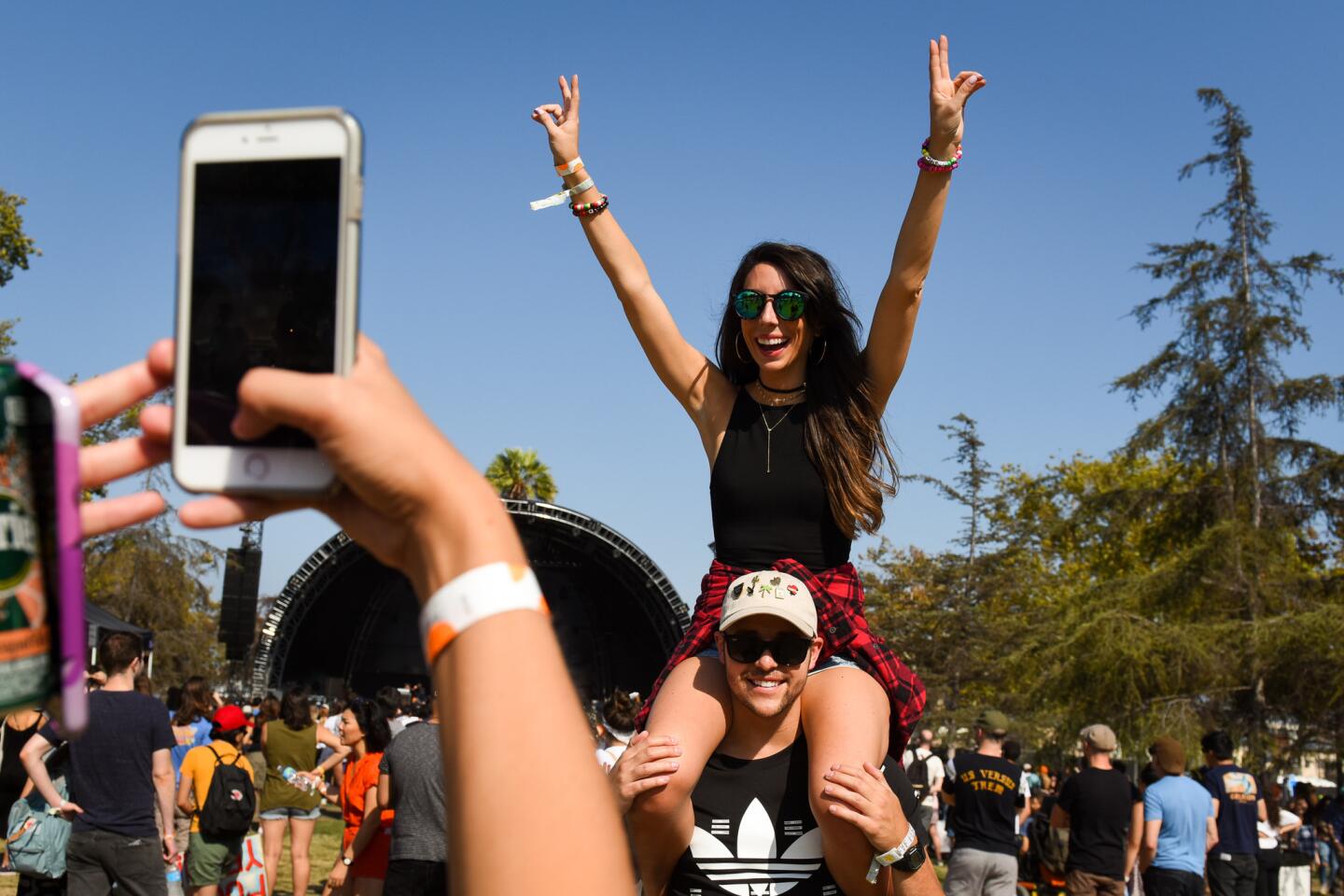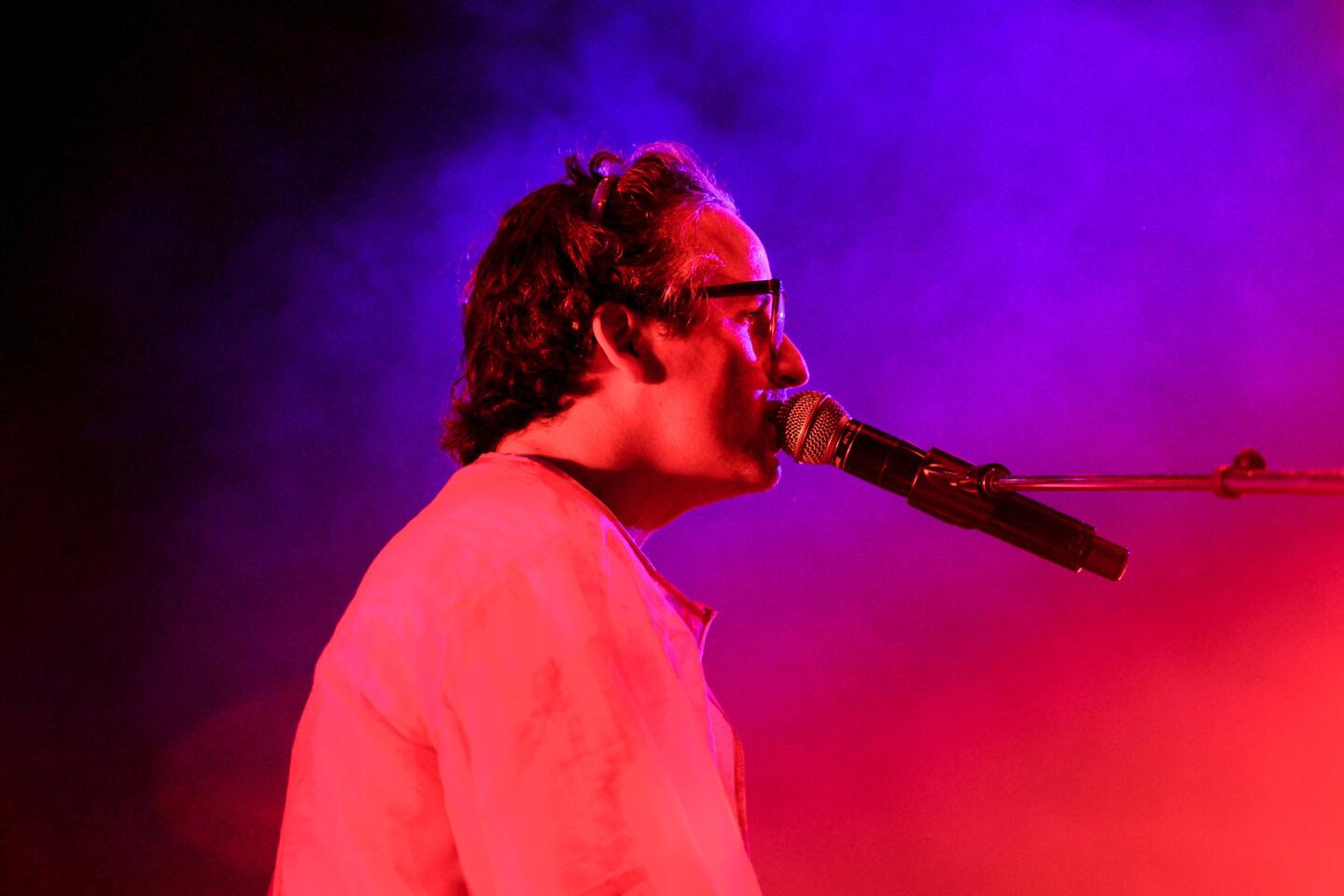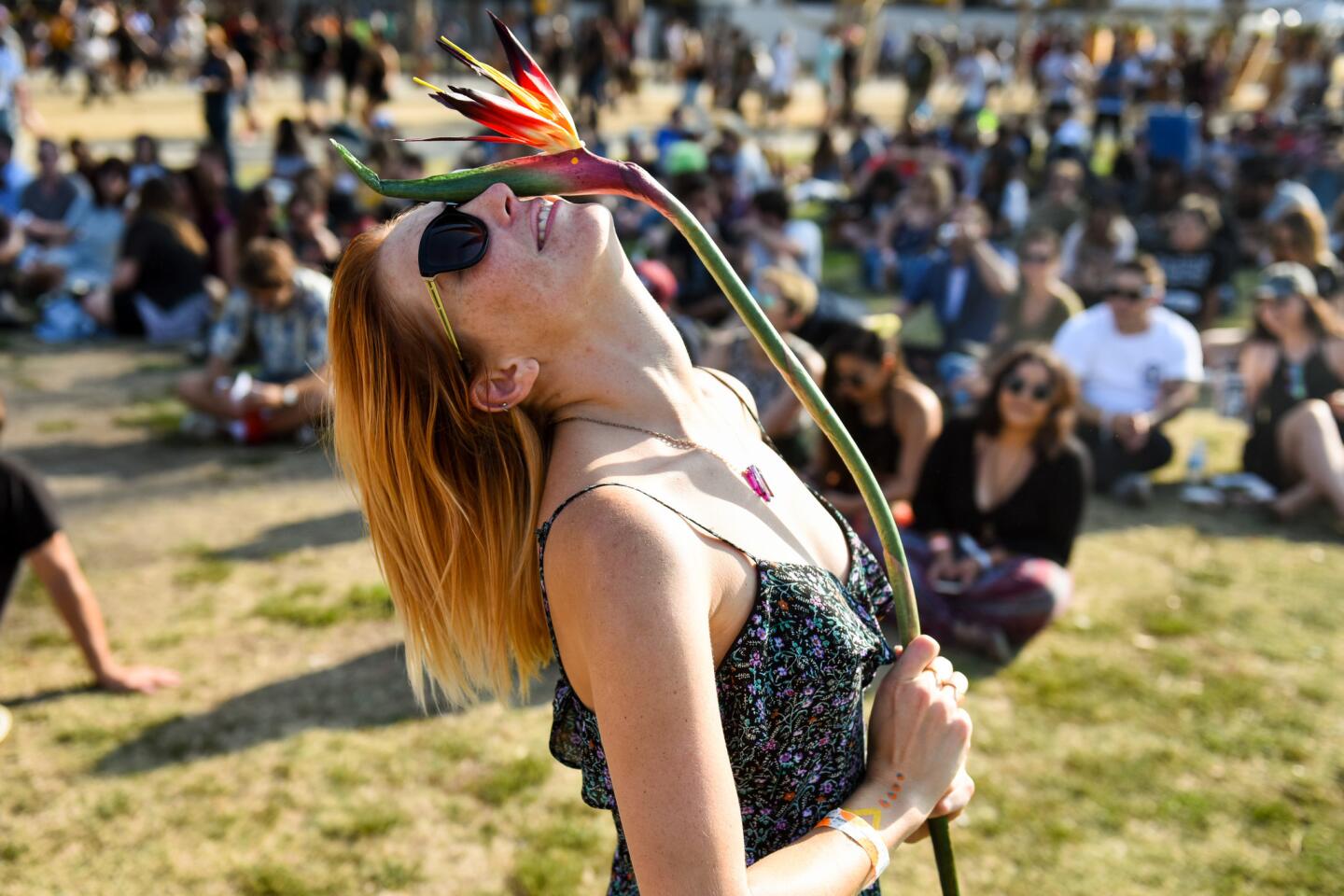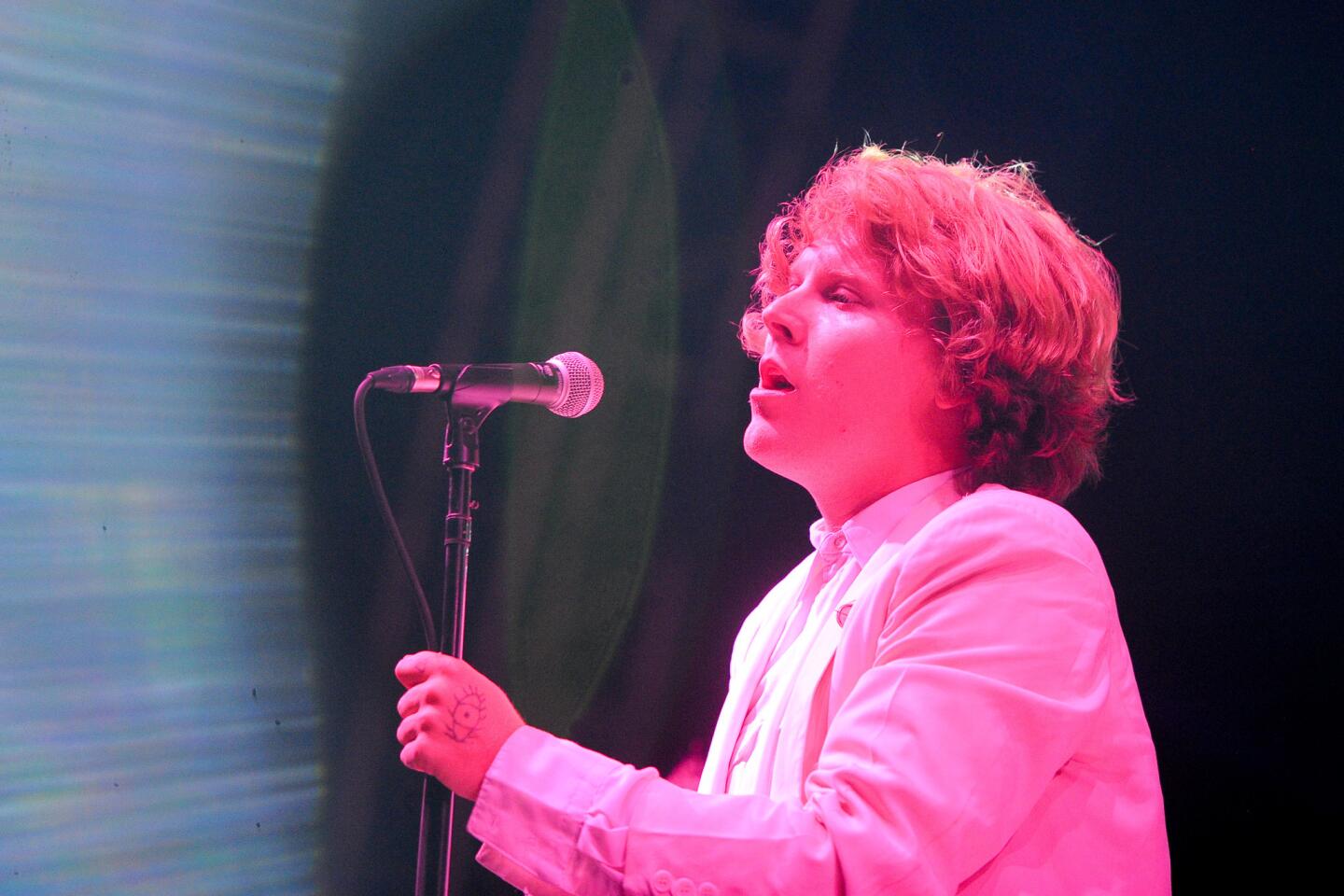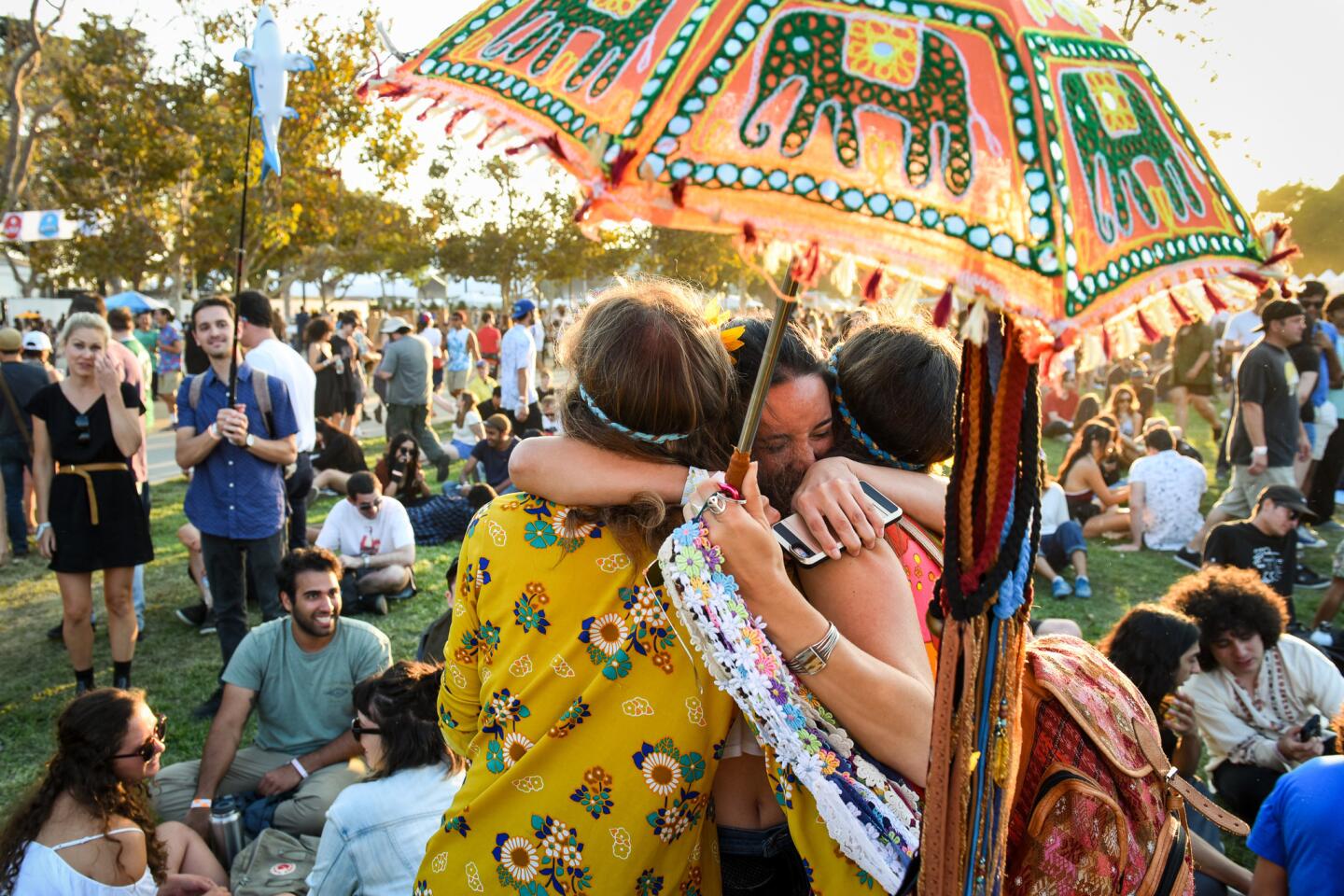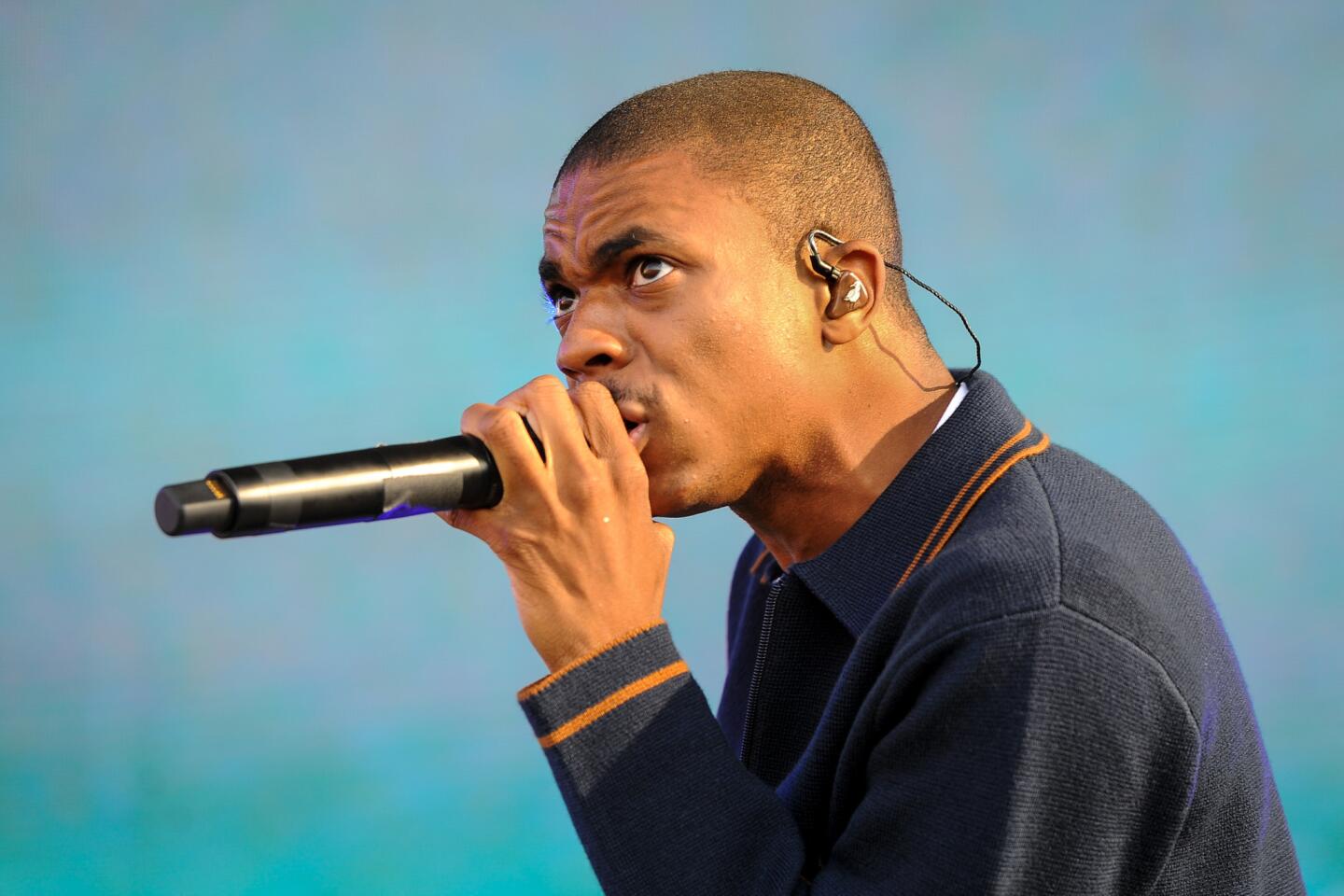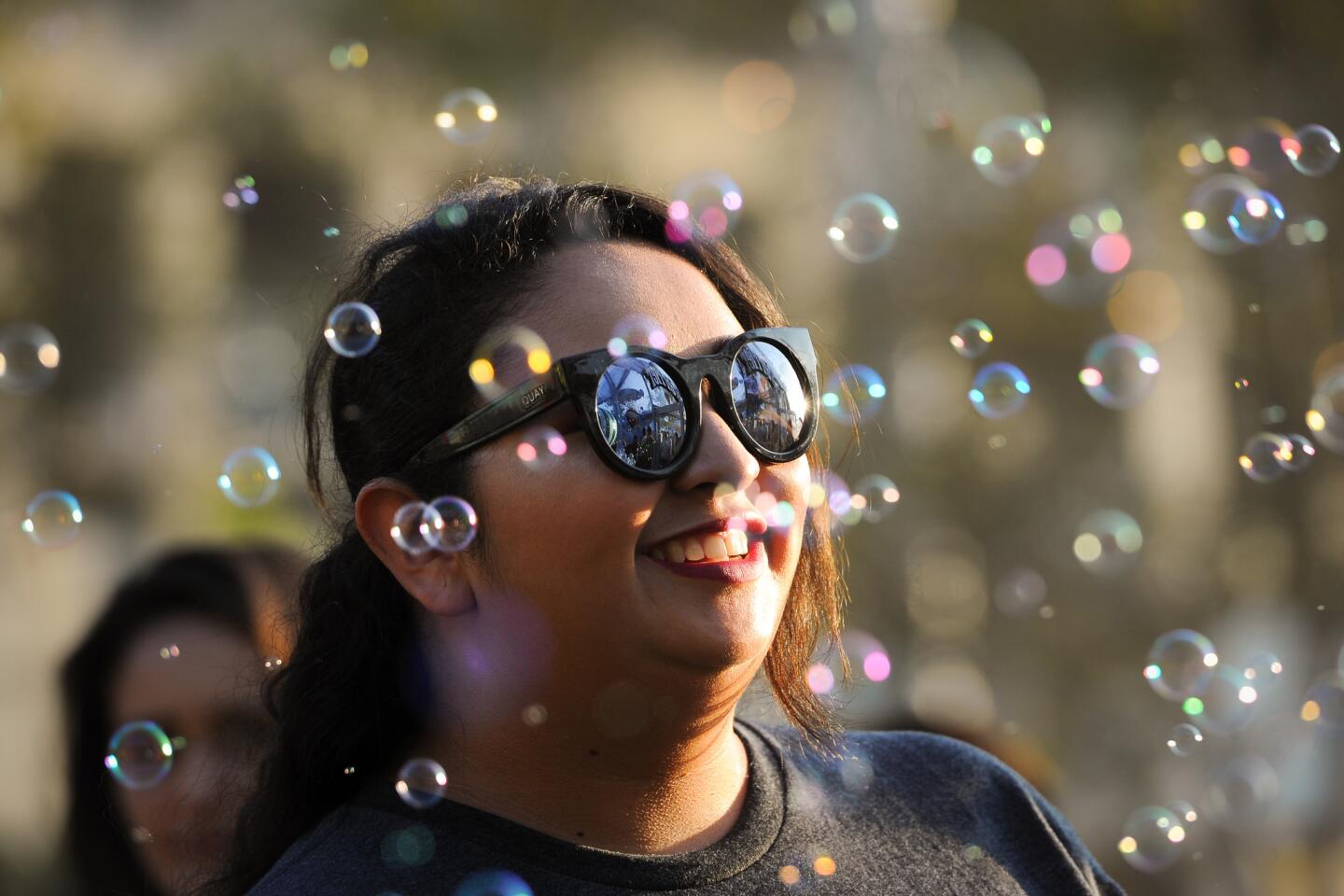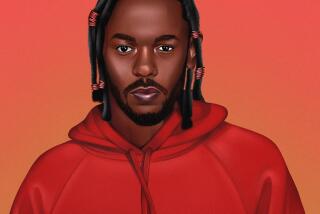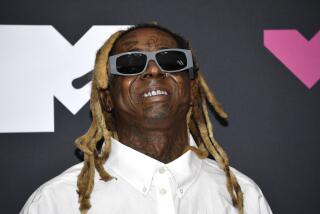Kendrick Lamar thrills an adoring hometown crowd — and conquers at least one skeptic at FYF Fest
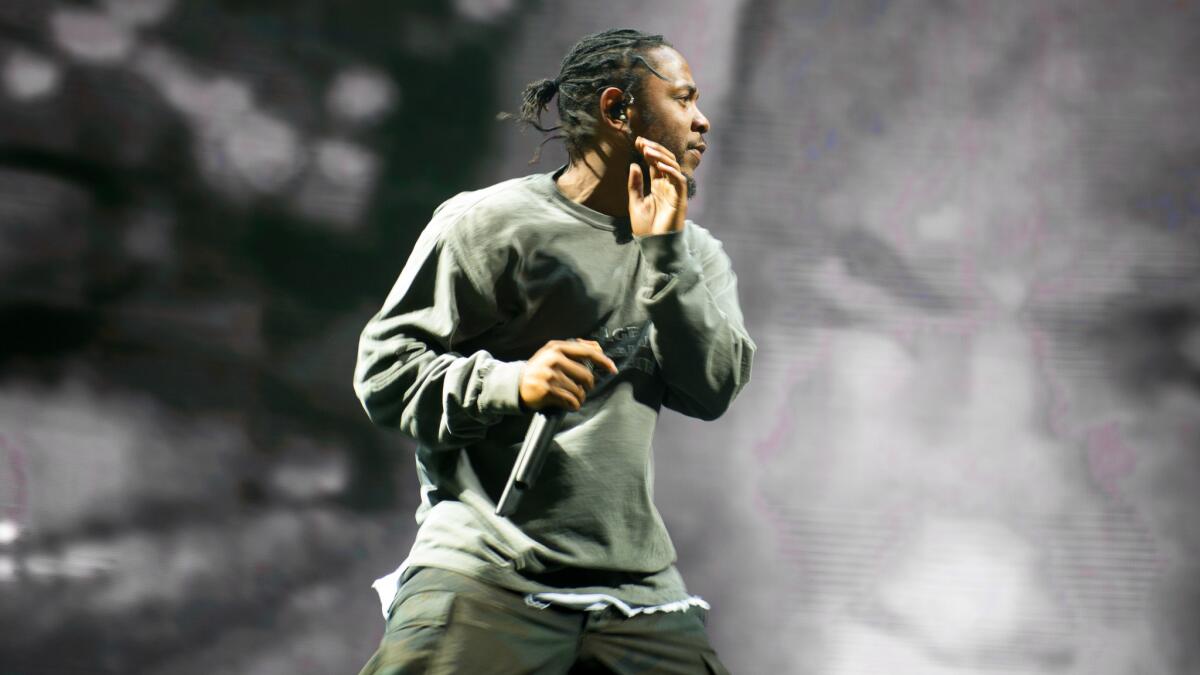
For a superstar, coming home means being embraced by those who’ve loved you longest. But it can also mean encountering those who remember that you weren’t always a superstar.
That’s what Kendrick Lamar was reminded of Saturday night at FYF Fest when the celebrated Compton rapper briefly got into it with someone in the audience near the end of his headlining performance.
Whether through words or gestures, the person had evidently made it clear to Lamar that he wasn’t impressed with his rapping — that maybe he could even do better given the chance.
“You serious?” Lamar asked with what looked like genuine surprise.
Then, signaling to his band, he threw down the gauntlet: “For Free?,” a great torrent of words from his landmark 2015 album, “To Pimp a Butterfly,” that he seemed to aim straight at the dude, determined to overwhelm him with sheer lyrical dexterity.
If the guy disputed Lamar’s showing when it was over, he couldn’t be heard above the roar of the crowd.
Saying it was only right that he bring his music back to “the foundation” after taking it around the world, Lamar was otherwise given a hero’s welcome in Exposition Park by fans who sang and rapped along with every song in his 90-minute set — even (or especially) “A.D.H.D,” from his 2011 debut, “Section.80.”
That album distinguished Lamar as a young West Coast rapper of real significance, someone capable of describing his surroundings and his emotions — and how the two are connected — with uncommon grace. But he wasn’t viewed as the voice of a generation until the next year’s “good kid, m.A.A.d city,” and that reputation only grew with the searing, explicitly political “To Pimp a Butterfly.”
You could sense Lamar trying to live up to the mantle at FYF, where he performed in front of an enormous high-def video screen that flickered all night with heavy pictures: black icons such as Muhammad Ali and Oprah Winfrey; symbols of white power such as Ronald Reagan and George W. Bush; a woman undressing; a fierce-looking bald eagle.
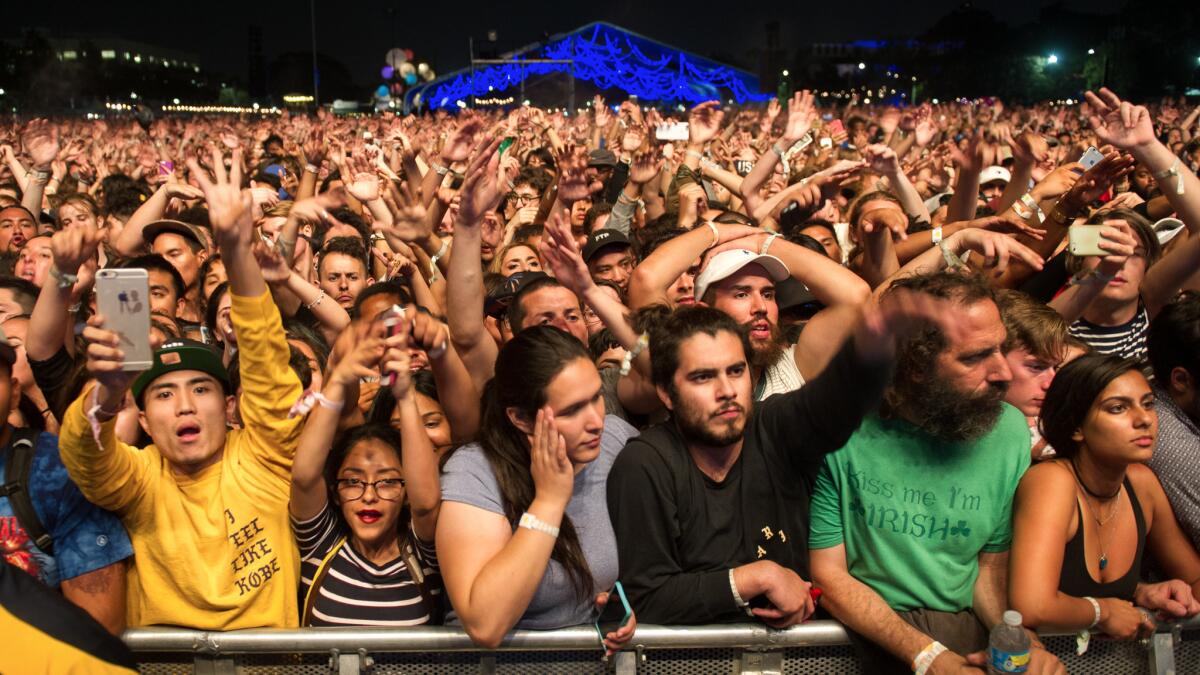
During “Bitch, Don’t Kill My Vibe,” footage of Snoop Dogg sitting cucumber-cool in a courtroom alternated with Bill O’Reilly hurling insults on the set of “Inside Edition.”
Which man represents a bigger threat? Lamar seemed to be asking as he wore a shirt that read “Image more valued than truth.”
The rapper’s skillful live band set up sonic juxtapositions to go with the visual ones: smooth and silky in “Complexion (A Zulu Love),” dense and funky in “These Walls,” crunchy and metallic in a furious rendition of “Backseat Freestyle” that might’ve satisfied a Korn fan in 1999.
As expansive as he got, though, Lamar was taking pains to root the music in the hometown he said he always kept in mind on his travels. His only guests were members of L.A.’s Top Dawg crew: Isaiah Rashad, who rapped his “Free Lunch,” and Jay Rock, who joined Lamar for “Money Trees.”
And when he introduced “A.D.H.D,” he talked about how much it meant on his way up to talk with people who’d shared the experience of drug abuse he describes in the song.
It was another reminder of who Lamar was before he became who he is.
Twitter: @mikaelwood
ALSO
Britney Spears is back in control on her sexy new album ‘Glory’
FYF Fest: 10 acts that make it worth braving yet another music festival
FYF Fest: Tame Impala’s Kevin Parker is making behind-the-scenes moves toward pop
More to Read
The biggest entertainment stories
Get our big stories about Hollywood, film, television, music, arts, culture and more right in your inbox as soon as they publish.
You may occasionally receive promotional content from the Los Angeles Times.
